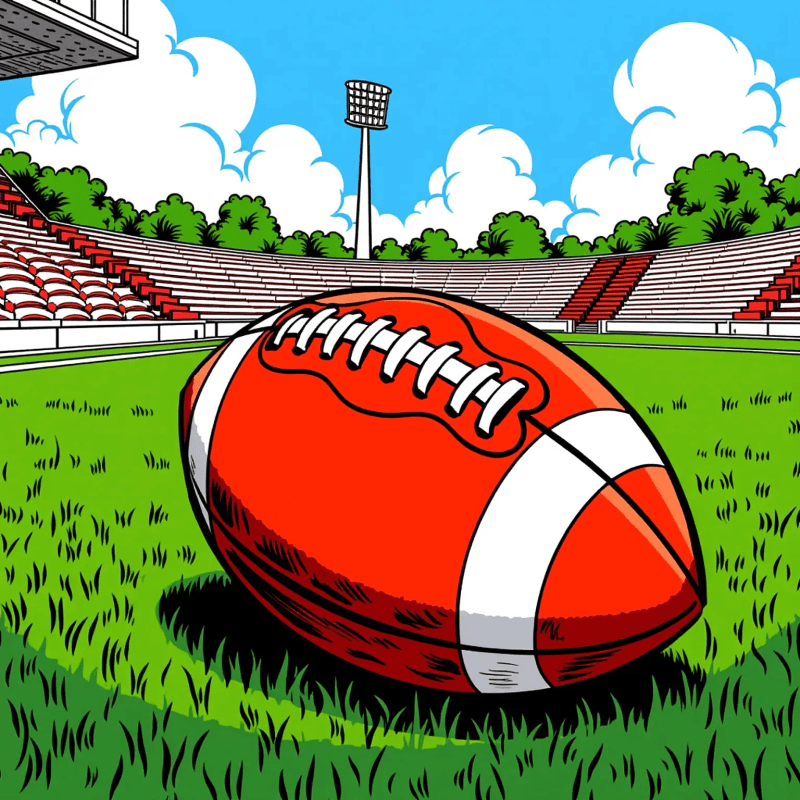Building core skills is super important for young players getting into flag football. These foundational skills not only make the game more fun but also boost a player’s confidence on the field. Here are some key areas to focus on:
Another great tip is encouraging teamwork. Flag football is a team sport, and players should learn how to communicate and work together. Fun team-building games can help solidify these connections while keeping the atmosphere light and enjoyable.
Finally, make practice engaging! Use games to reinforce skills, like relay races for speed or passing challenges to spice things up. The more fun they have, the more they’ll want to keep practicing and improving their flag football skills.
Drills That Make Practice Fun
Keeping practice exciting is key to developing skills and a love for flag football. Here are some fun drills that can make your training sessions feel less like work and more like play!
1. Relay Races: These are fantastic for building teamwork and speed. Divide the team into groups and set up a simple course. Each player must run to a designated spot and back, then tag the next player. This not only gets everyone moving but also fosters team bonding.
2. Flag Pulling Contest: This drill focuses on one of the most important skills in flag football—pulling flags! Set up a small area and have players pair up. One player wears flags while the other tries to pull them off. Switch roles to let everyone practice. It’s competitive and loads of fun!
3. Zombie Tag: For a fun twist, turn tag into a zombie theme. One player is the “zombie” who tries to tag others while eliminating them with two flag pulls. If tagged, the player becomes a zombie too! This keeps players engaged and running around while practicing their flag football skills like agility and evasiveness.
4. Obstacle Course: Set up an obstacle course using cones, hurdles, and safety bags. Players navigate the course while carrying the ball, practicing their footwork and ball control. Make it a timed event to spark some friendly competition among teammates!
These drills add variety to flag football practices and keep young athletes enthusiastic about improving their skills. Pairing fun with practice encourages kids to stay engaged and work together as a team.
Understanding Game Strategy Together
When it comes to flag football, having a solid game strategy makes all the difference. It’s not just about running fast or throwing hard; understanding how to work together as a team can really elevate your game. One of the best ways to grasp this is through practice, where everyone learns their roles and how they fit into the bigger picture.
Start by breaking down plays together as a team. Gather the kids and go through what each player is supposed to do during a play. Do they know their positions? What routes should they run? How should they block? Discussing these things builds confidence and allows everyone to ask questions. This way, no one feels left out or unsure when it’s time to hit the field.
Another fun way to enhance your game strategy is by setting up scrimmages. This gives everyone a chance to put what they learned into action. Encourage the kids to communicate on the field, calling out plays and helping each other out. Teamwork is essential, and practicing together will make a big difference during real games!
Finally, review game footage if possible. Watching how the team performs in a friendly or practice game can help everyone see what worked and what didn’t. Discussing these moments together can spark valuable conversations around strategy and help tweak future plans for success. Remember, flag football is not just about skills; it’s about growing together as a team too!
Keeping Kids Motivated and Engaged
First, incorporate games that inspire teamwork. Activities like relay races or tag can create a sense of camaraderie while also sharpening their skills. When kids work together, they develop trust and learn to communicate better on the field. This not only spices up practice but also helps them bond as teammates.
Another effective strategy is to set achievable goals. Start with small milestones, like improving their passing accuracy or learning a new play. Celebrate these achievements, no matter how small! This helps kids feel a sense of accomplishment and keeps them eager to reach the next goal.
Don’t forget to mix in plenty of variety during training sessions. Keep things fresh by changing drills, incorporating fun challenges, or introducing friendly competitions. This variety not only makes practice enjoyable but also keeps kids engaged in mastering different aspects of flag football.
Finally, showcasing their improvements can work wonders. Consider organizing small scrimmages or inviting family members to watch practice games. Kids love to show off what they’ve learned, and these moments can motivate them to keep pushing themselves. Keeping the focus on fun and progress will make their flag football journey memorable.

